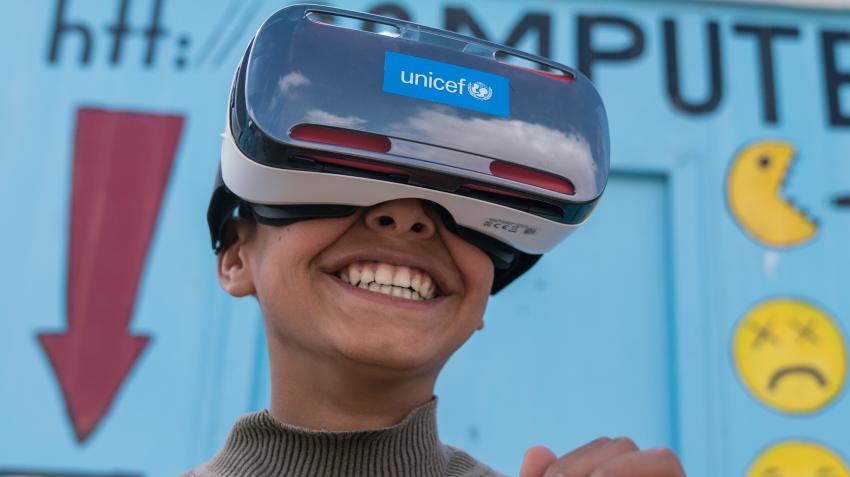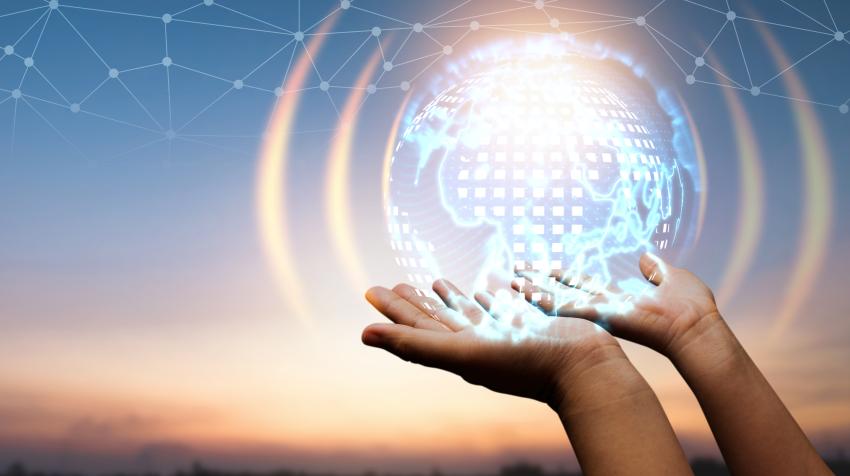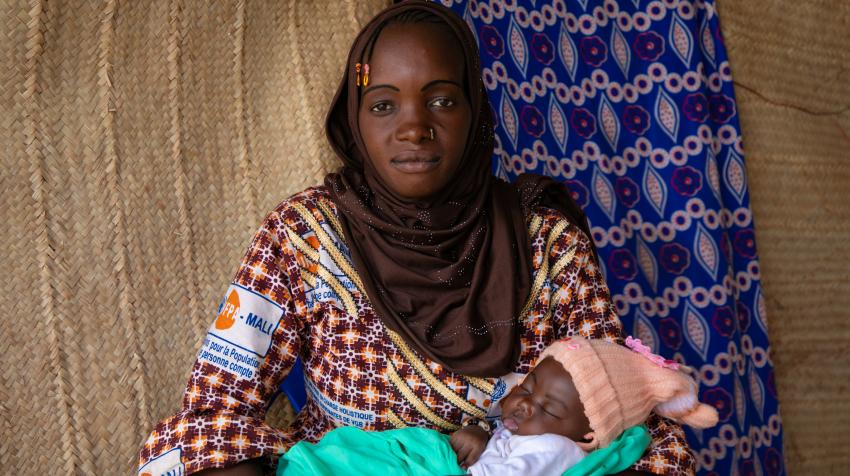December 2018, Nos. 3 & 4 Vol. LV, "New Technologies: Where To?"
Technological change in the digital era is transformational, but it does not always advance sustainable development or reduce inequality. In some countries today, more people have access to smartphones than access to clean water or adequate sanitation. Over the past three years, the applications of artificial intelligence (AI) have grown, but so has the number of people living in hunger.
Many argue that global inequality has been exacerbated with a concentration of skill sets and digitally generated wealth in a limited number of companies from only a handful of countries. Access to the digital world is also unequal between men and women since those benefiting most from developments in that world are men. A March 2017 report by the United Nations Broadband Commission for Sustainable Development, set up by the United Nations Educational and Scientific and Cultural Organization and the International Telecommunication Union, notes that there is a worldwide digital gender gap of 12 per cent in male and female access to the Internet, which rises to almost 31 per cent in the least developed countries. [1]
Today, technological change is driven largely by private companies, making it harder for social scientists, policymakers, Governments and legislators to keep up. Major innovations that occurred earlier in the life of the United Nations, such as the harnessing of atomic energy and manned space exploration, were made under government auspices. During that period, national and international policy kept pace better. One example is the Outer Space Treaty, signed early in the space age, in 1967. Another is the founding document of the International Atomic Energy Agency (IAEA), which led to the approval of the Statute of the organization in October 1956.
Policy formulation in the digital era is challenging. While we have some clarity on what new inventions are in the pipeline, we have much less understanding of what they imply for humanity.
We know that by 2030, virtually all humans will be connected to the Internet, as will the majority of objects around us. In addition, many of us will have web-connected implants and other medical devices. We know that the combination of big data, machine learning and AI will replace human agency in multiple tasks, from driving cars to the conduct of warfare and police surveillance. We know that progress in gene technology and bioengineering will allow for better screening and treatment of embryos, allowing for the birth only of those with no undesired features.
What we understand far less is what all these changes will mean for us socially, politically and psychologically: what they will mean for the relationship between citizen and State, for the conduct of conflict, for our economies, for our psyche and for our human rights.
Billion-dollar tech companies and the engineers who staff them can be caught unaware of the consequences of their inventions. Social media platforms connect us, but as an increasing body of research is showing, they can also be used to spread hatred, to disseminate misinformation, to fuel conflict and hence to undermine democracy and social cohesion. Social media allows for this on a massive scale at a negligible cost.
A Human Rights Council fact-finding mission report from March 2018 illustrated how social media in Myanmar nurtured hate and ethnic violence.[2] Other studies, such as one conducted by Princeton University and the University of Warwick in 2017 on anti-refugee sentiment in Germany, have also shown how social media can exacerbate racism and xenophobia. [3]
An ever-growing number of children benefit from the use of smartphones and handheld computers at an ever-younger age. For many parents, the tablet has replaced other forms of childcare. Such devices provide useful access to learning tools and entertainment, but how much do we understand what the effect is on the development of a child’s concentration and his or her other cognitive skills?
AI applications are used in ever-expanding areas of our lives, from dating apps to medical diagnosis. We do not know, however, what AI will do for the employment prospects of our children, for warfare, for personal agency in politics or for gender disparities. The Israeli social scientist and historian, Yuval Harari, argues that machine learning and the dominance of algorithms will mean that economic growth and the conduct of war will no longer depend on human labour. Harari also contends that with algorithms and big data-generated access to insights on everything from making appropriate romantic decisions to political choices, the concept of free will that underpins the liberal world order will grow obsolete, and with it, liberalism itself.
Many technologists, on the other hand, argue that the threats are overstated and that there is no challenge posed by new technology that new technology will not be able to solve. The debate over risks and threats can be polarizing; few, however, would disagree with the observation of Secretary-General António Guterres in his 25 September 2018 speech to the General Assembly,[4] that twenty-first century challenges are outpacing twentieth century institutions and mindsets.
To address this asymmetry we need to begin by better understanding new technology and its implications. This is required both to harness it for the pursuit of the 2030 Agenda for Sustainable Development and to curtail the potential harm caused by malicious use and unintended consequences.
The Secretary-General has launched a series of initiatives to position the Organization to better address both the enormous potential of new technologies and the associated disruption. The goal of the Secretary-General’s Strategy on New Technologies, the first-ever internal United Nations system strategy on the topic, is to define how the system will support the use of new technologies to accelerate the achievement of its mandates, in particular the 2030 Agenda. The first section of the strategy elaborates on five principles to guide United Nations engagement on new technologies and the second section elaborates on four commitments.
The five principles are related to adherence to global values, upholding transparency, fostering partnerships and maintaining a learning mindset. They are to guide the work of the United Nations as it engages with new technologies such as cryptocurrencies, biotechnology and AI. The four commitments in the strategy are:
1) Deepen the United Nations internal capacities and exposure to new technologies;
2) Increase understanding, advocacy and dialogue around new technologies;
3) Support dialogue on normative and cooperation frameworks; and
4) Enhance United Nations system support to government capacity development in these areas.
The commitments are already being pursued. They have been elaborated in a set of 24 action points. To implement these, an internal working group was established whose members will deliver on the action points over the next 12 months. These action points include, inter alia, new technology training for United Nations staff and Member States, hiring external technology talent, and updating evaluation criteria for senior staff to promote innovation and the innovative use of new technologies.
The Secretary-General has also established an innovation lab in his office—a space to test new ideas, advocate for technology solutions and build partnerships with technology companies to improve our decision-making.
On 12 July 2018, the Secretary-General announced the launch of his High-level Panel on Digital Cooperation. The Panel, made up of eminent people and co-chaired by Jack Ma and Melinda Gates, will recommend new models for global cooperation in the digital space. The group includes industry vanguards, young tech entrepreneurs, a Nobel Prize-winning economist, government ministers and human rights activists.
At their first in-person meeting on the sidelines of the General Assembly in September 2018, the Panel was able to agree on an outline for their report. The Panel will seek to provide recommendations in the areas of digital values and principles, as well as the methods and mechanisms of digital cooperation. It will also identify innovative examples of digital cooperation that are ongoing in areas such as data privacy, inclusive finance and human rights in the digital age.
The Panel is currently gathering views from a broad range of stakeholders and undertaking substantive research. Their next meeting, which will take place in Switzerland in January 2019, will begin the process of formalizing recommendations with a report planned for release in the first half of 2019.
In addition to his work with the High-level Panel on Digital Cooperation, the Secretary-General has also engaged in a wide-ranging technology advocacy effort. He is increasingly speaking about the use of technology for development and its potential misuse. He is also stepping up his engagement with the technology community to draw attention to the opportunities and risks, and to advocate for the pursuit of progress in line with the values and objectives of the United Nations.
The Secretary-General wishes to bring the United Nations into the digital era and to ensure that it is better positioned to support Member States in making technology work for the benefit of all, and in particular for those against whom it can be used—intentionally or inadvertently—to threaten, to exclude or to leave behind.
Notes
[1] Broadband Commission for Sustainable Development, “Working Group on the Digital Gender Divide: Recommendations for action: bridging the gender gap in Internet and broadband access and use” (March 2017), p. 7. Available athttps://broadbandcommission.org/Documents/publications/WorkingGroupDigitalGenderDivide-report2017.pdf.
[2] A/HRC/39/64. Available at: https://www.ohchr.org/EN/HRBodies/HRC/Pages/NewsDetail.aspx?NewsID=23575&LangID=E.
[3] Karsten Müller and Carlo Schwarz, “Fanning the flames of hate: social media and hate crime”, May 2018. Available at: https://ssrn.com/abstract=3082972.
[4] Available at: https://www.un.org/sg/en/content/sg/speeches/2018-09-25/address-73rd-general-assembly.
The UN Chronicle is not an official record. The views expressed by individual authors, as well as the boundaries and names shown and the designations used in maps or articles, do not necessarily imply official endorsement or acceptance by the United Nations




